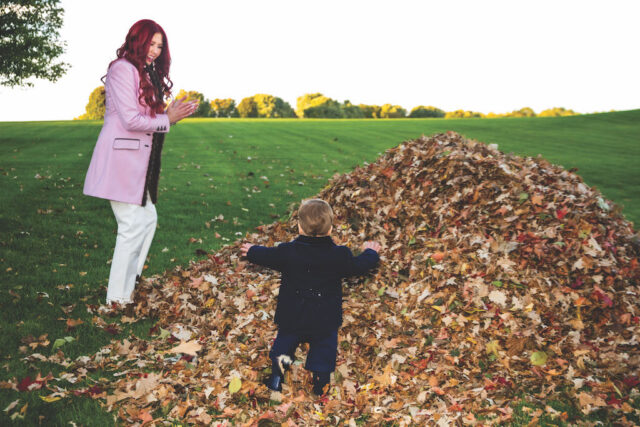
The word “philanthropist” may be a familiar term, or it may seem far away from your personal experience. Isn’t philanthropy something only wealthy people do? Actually, it simply means helping those in need, out of a desire to promote the well-being of others. That’s something anyone can do. It doesn’t have to be about money. Everyone has something to give. It could be time, talent, creativity, nurturing, strength, skill, courage, resolve, inspiration or just a helping hand.
Giving has always been important to me. It makes me happy, and I believe it has helped me to find my purpose. At this stage in my life, I am devoted to a more traditional version of philanthropy, but earlier in my life, I channeled my giving through my training as a functional medicine health practitioner. I sought to change people’s lives by providing the knowledge and means to take ownership over their health. My first job and practice were in a relatively low-income part of the Midwest where people already had trouble accessing good health care. The integrative practice I brought to that area was very new at the time, but I wanted everyone, despite their income or background, to be able to have access to personalized, empowering, natural health care and information about how lifestyle affects health. That kind of giving also remains a big part of what I do today in my media outreach and book writing, but it was all I had to give back when I was just getting started.
This holiday season, consider that you have much to give, in your own way, and the effort will be worthwhile. The energy you expend to offer your resources to those in need will flow back to you tenfold, so consider that finding your own way to practice philanthropy can be an investment in yourself, as well as in the causes that matter most to you.
The Health Benefits of Giving
Giving is good for your health. Scientists have studied the biochemistry of giving, and know that when a person offers help to another, the reward centers in the brain are stimulated as the brain releases endorphins, serotonin, dopamine and oxytocin, which are associated with positive feelings of pleasure and a happy mood, as well as a sense of connection with others. People who give also have lower blood pressure and reduced levels of the stress hormone cortisol, and they live longer.
Multiple studies have shown that giving, such as volunteering or simply doing something nice for someone else, has measurable health benefits. One study of seniors showed that those who volunteered their time to help others had reduced dementia risk, better general health and fewer functional limitations. Volunteering has also been associated with longer life span, as well as lower blood pressure. Researchers have theorized that volunteering often provides an abundance of opportunities for improving health, such as an increase in outlets for physical movement, positive social interactions and beneficial cognitive challenges.
Giving has mental as well as physical health benefits, including lower risk of depression, less anxiety, increased feelings of self-esteem and more reported happiness. According to research on the benefits of volunteering in one study, the psychological advantages of giving were most distinct in terms of the effect on social integration. Those people who were less socially integrated, meaning they had fewer strong social connections before they began volunteering, benefited the most, as volunteering gave them an opportunity for social participation and human connection.
Multiple studies have also revealed that those who perform generous acts such as charitable giving and volunteering report an improved quality of life and greater happiness. Givers report feeling happier when they spend money on other people than when they spend it on themselves, and this positive feeling motivates them to continue to act generously. According to a report on The Science of Generosity, those who perform acts of kindness, even small ones like picking up something someone else has dropped, feel increased happiness. Giving is also associated with lower rates of job burnout and more successful romantic relationships.
You, the Philanthropist
Could you be a philanthropist? Of course. There are always others that need help, and causes that are dear to your heart. My husband is passionate about giving to cancer research because his mother passed away from the disease, and he always felt that more could have been done to help her. As a result of this passion, he founded Gateway for Cancer Research in 1991, to exclusively fund
Phase I and Phase II cancer clinical trials. This research is crucial to the discovery of innovative new treatments for all types of cancer.
I’ve spent most of my life pursuing the secrets to health and wellness. So much of my giving is related to that passion. What matters to you? Where can you help?

Maybe you want to help children or animals, disaster victims or disadvantaged seniors, according to your personal experience. Religion, education, the arts, preservation of the natural world—these are just a few of the possibilities. You may already know what speaks to you.
What happens next? Think about where you are richest. Is it financially, or are you rich in time, or talent, or passion? Or do you just want to bring more kindness to your community? Here are some simple suggestions to get you started:
Financial giving: Set up a small monthly donation to a cause of your choice, so the money is withdrawn automatically. You probably won’t notice a small amount, but over time it can accumulate to make a meaningful difference to an organization or group that needs the support.
Donating time: If you would rather give time than money, consider volunteering for a local organization that needs hands on deck. Let them know what you can do, and how much time you have to offer. Ask them what they need, and find what you are willing to do to help. That could mean spending an hour a week reading or tutoring children at a local school, visiting seniors at an assisted living facility once a month, stuffing envelopes, knocking on doors or working at a phone bank, helping with fundraising events, walking dogs or petting cats at the local shelter, volunteering at your church, or serving food at a soup kitchen over the holidays. Whether you do something daily, weekly, monthly or yearly, your contribution will make a difference.
Offering talents: Contribute your special skills. If you can write or design well, you could donate your services to a group’s newsletter, brochures or other published elements, such as posters for a local theater. If you can play the piano, you could volunteer to accompany a children’s or church choir. If you are a natural in front of an audience, you might be an emcee at an event. If you are a whiz with numbers, you could help with accounting.

Giving what you love doing: Think about what you enjoy doing most. Are you good with kids or animals, do you love performing or working behind the scenes, do you thrive in a church environment or when working outdoors? Do you love to work in a group, or do you prefer to work alone? A key benefit that comes from giving is being an active part of something you really enjoy, while knowing you’re helping someone else in need.
Small acts of kindness: Giving doesn’t have to be quite so formal. The two-way benefits exist in even small moments of kindness. A compliment to someone who is having a bad day, a kind word to the store clerk or barista, letting someone in ahead of you in traffic, getting the door for someone with their hands full, a sympathetic smile or an offer of help to the parent whose child is having a hard time at the park, can make all the difference in their day and yours. Just imagine if we all defaulted to kindness, what a different world it would be. Your small act could change the course of someone’s day, or who knows—even their life.
The more you choose to give, the better it feels, as long as you don’t give more than you have, which can result in burnout and stress. Don’t forget to take care of yourself, too. You can’t pour from an empty cup, so keep replenishing your own resources, and you will continue to have resources to offer to others.
The last thing to consider about giving is the example it sets for others. My husband and I want to be sure our children learn the joy and responsibility of giving. When you include your children in your service work and acts of kindness, they too will learn how good it feels to give. The wonderful thing about giving is that it increases the flow of energy and connection between people, and I think that’s the main reason why it is so powerfully beneficial to both the giver and the receiver. drstaciestephenson.com





